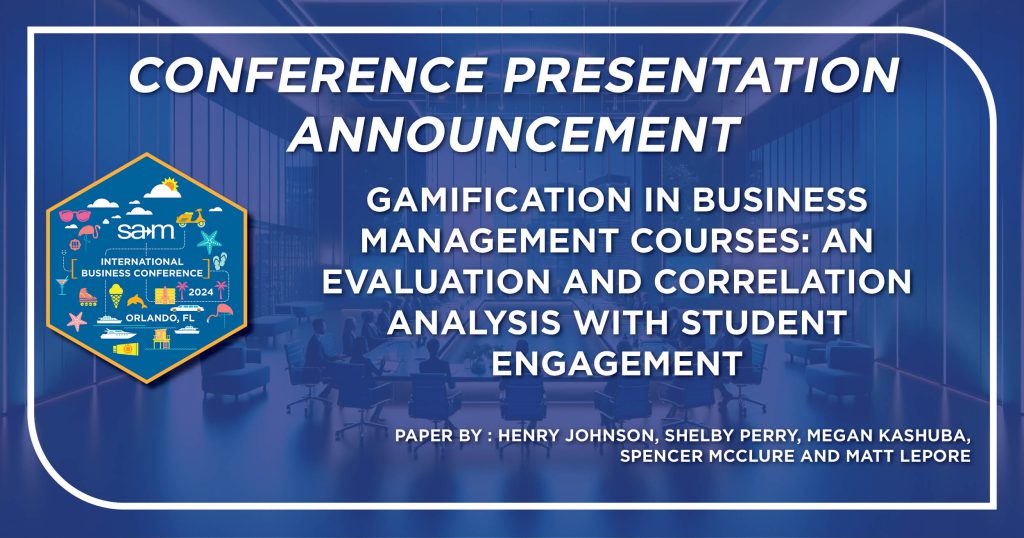
The programming committee for the 79th Annual SAM International Business Conference is pleased to announce the acceptance of the presentation, Gamification in Business Management Courses: An Evaluation and Correlation Analysis with Student Engagement by Henry “Hank” Johnson, Shelby Perry, Megan Kashuba, Spencer McClure and Matt Lepore.
We are thrilled to announce that the New England Institute of Technology has recently completed a groundbreaking study within the Business Management program, which will be presented at the upcoming SAM International Business Conference. This comprehensive research delves into the innovative realm of gamification in education, exploring its implementation across various courses and its impact on enhancing student engagement—a topic that has garnered significant interest among educators and technologists alike.
The primary goal of this study was to meticulously evaluate the degree of gamification embedded within the Business Management courses. Through a detailed content analysis of course materials, assignments, and assessments, the research team, drawing upon existing scholarly work, scrutinized the presence of interactive simulations, game-like scenarios, and incentivized learning activities. This not only provided insights into how gamification elements are integrated into both the online and offline components of the courses but also built upon the evidence supporting blended learning approaches as an effective educational strategy.
Central to the study was the collection and analysis of student feedback through the Feedback and Assessment System for Student Tracking (FASST). This standardized platform enabled the researchers to capture and examine student opinions on their academic experiences in relation to gamification. By categorizing feedback based on specific course identifiers, the study offered a nuanced look into the student perspective, aligning with the best practices in educational assessment.
To quantitatively measure the impact of gamification on student engagement, the research team employed statistical analyses, including correlation analysis and regression modeling. These methods sought to uncover any significant relationships between the level of gamification and indicators of student engagement, such as overall satisfaction, perceived educational value, and motivation. This approach was informed by previous studies that have successfully utilized similar methodologies to explore educational outcomes.
The findings from this study are expected to shed light on the effectiveness of gamification strategies in fostering student engagement within the Business Management program. By contributing valuable insights into the role of gamified elements in education, this research aims to influence curriculum development, instructional design, and educational policy. As the authors prepare to share our findings at the SAM International Business Conference, they look forward to engaging with fellow educators, researchers, and policymakers in discussions that will shape the future of business management education. The implications of this study have the potential to not only enhance the learning experience for students but also to pave the way for innovative educational practices in the field of business management.
Join us online or in person at SAMIBC 2024 and see this great presentation and many more March 19 – March 23, 2024. For registration information visit www.samnational.org/conference.
